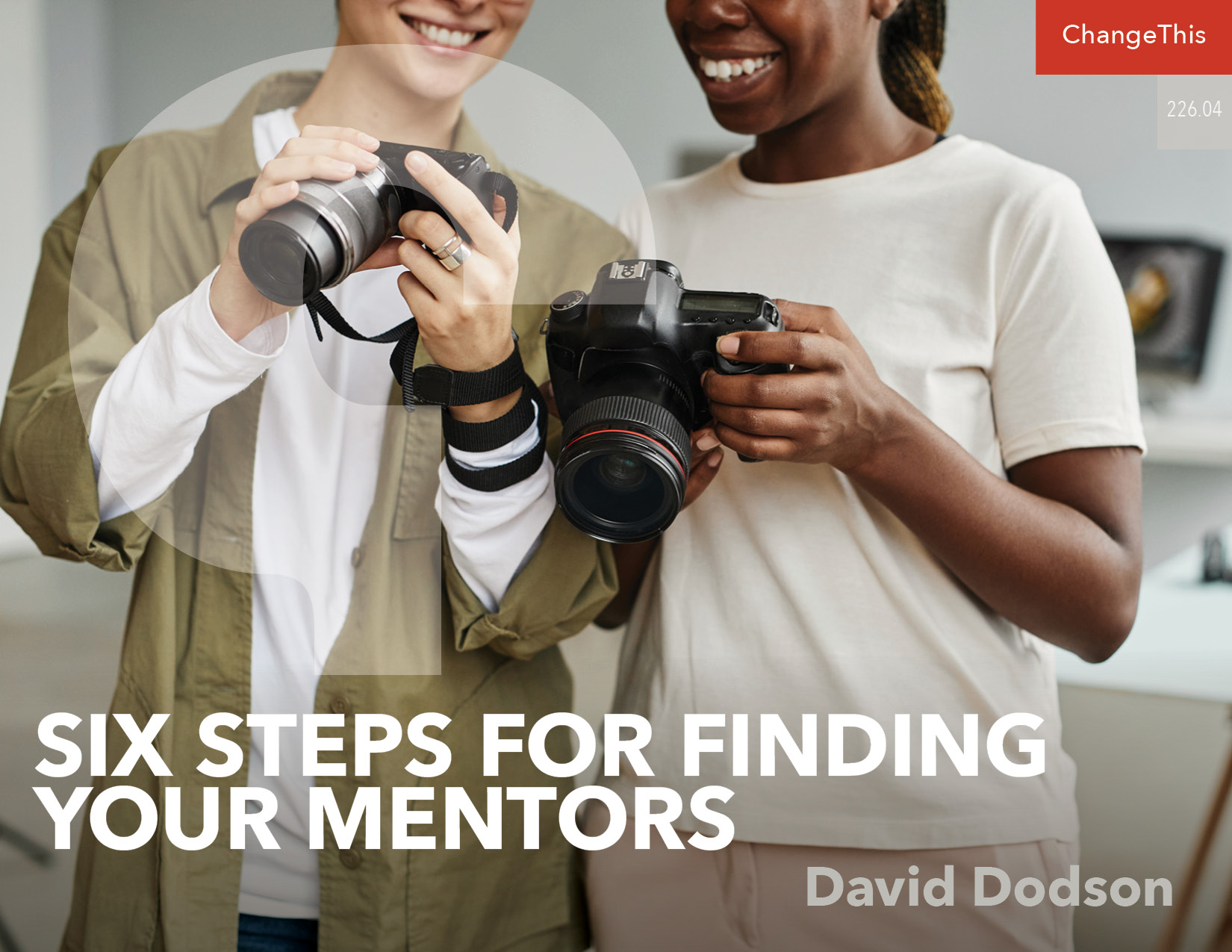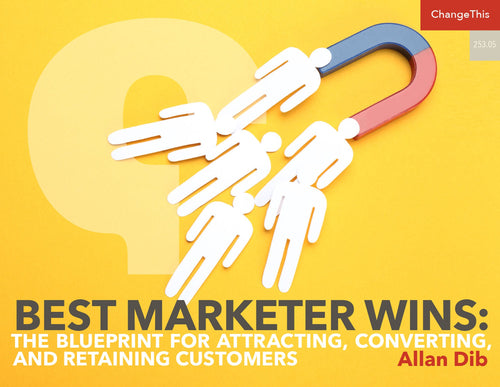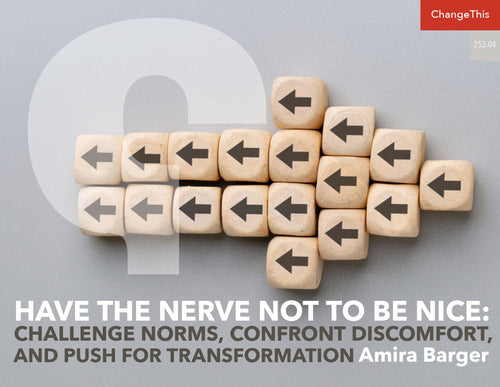Six Steps for Finding Your Mentors
When I was an early investor and on the board of Asurion, which grew to several billion dollars in revenue, I watched how its CEO, Kevin Taweel used his network of mentors as a key factor in his company’s success. “The number one reason for where we are today,” he later told me, “is that I surrounded the company with great advisors, and then we used them voraciously.”
As a business leader, you’ll face very few unique problems. Generally, the answer, or a framework to find the answer, already exists.
While less secure managers want to solve everything themselves, the most confident leaders know better. Sir Richard Branson, founder of the Virgin Group, underscores Kevin’s experience when Branson wrote, “If you ask any successful businessperson, they will always have had a great mentor at some point along the road.” Mary Barra, the chief executive officer of General Motors, points out that the best leaders create a network of advisors, “Some executives credit one or two key people for coaching them to success, but I believe effective mentoring takes a network.”
Mentors and advisors come from different perspectives, and the best managers seek and take advice from multiple sources, then reconcile differences—and note commonalities— before choosing the best path forward. Creating this network, though, does not come organically. To build the type of network like those of the best managers, you’ll need to begin by creating a scorecard.
A SCORECARD FOR MENTORS AND ADVISORS
Some people mistakenly believe that the best mentors come in the form of larger-than-life heroes, capable of the business equivalent of x-ray vision. They try to create relationships with famous people and their notable resumes and titles. But just like hiring well requires a scorecard to focus on outcomes and attributes, so too does building a network of advisors. While the desired outcomes will be particular to you, there are two universal attributes of an effective advisor: objectivity and pattern recognition.
Objectivity
Objectivity is best defined as a faithfulness to the facts, coupled with self-awareness of the personal biases that come with one’s view. These two characteristics are inextricably connected. As our mind processes a problem, our thought process is never free from emotion prejudice. That prejudice may lead to exaggerated optimism, unnecessary fear, or decision paralysis—while diminishing the precision of our decision-making. This bias causes us to drift from where the facts would otherwise take us.
Stanford’s Department of Philosophy observes, “Humans experience the world from a perspective. The contents of [individual] experiences vary greatly with [their] perspective, which is affected by [their] personal situation, and the details of [their] perceptual apparatus, language, and culture.”
The advantage of seeking advice is that outside advisors generally arrive with less emotional bias than the people solving their own problems.
This is not to say advisors are without bias, they just have less of it. And that lessening of bias, all by itself, is a benefit of seeking and taking advice.
But you can do better than just less bias. As you build out your team of advisors, look for and chase down those people who have a high degree of objectivity through a self awareness of what prejudice they do have. Observe how they respond to your questions. Superstar mentors are reflective enough to begin a sentence with, “I once had a very negative experience with litigation, which impacts what I am about to say...” while a person less aware of their bias might begin, “Here is what you need to understand about litigation...”
It is objectivity, not a superhuman ability to problem-solve, that allows your mentors and advisors to evaluate data with greater fidelity and speed. As you identify potential advisors and cultivate your network, be alert to a person’s objectivity as a key attribute of a powerful mentor.
Pattern Recognition
Pattern recognition occurs when we are faced with a situation that triggers a set of experiences accessed from our long-term memory.
As we observe similar events, and the success or failure of various approaches to those events, we store most of that information. Later, our mind searches our mental hard drive for similar encounters we’ve had in the past. This background processing takes place primarily without our direct awareness and is the model for what is now done by computers and referred to as artificial intelligence.
Pattern recognition is more subtle than direct knowledge, such as touching a hot stove and realizing not to do that again, or knowing that 1 + 1 always equals 2. With pattern recognition, we retrieve similar situations and neurologically estimate the answer based on how this situation compares to prior experiences.
As you develop your mentor scorecard, identify the types of problems you expect to face, and then set your scorecard to search for people whose mental hard drive is filled with similar problems. For example, if you run a medium-sized construction business, the billionaire chairman of a media empire may have less in the way of pattern recognition than the vice president who operates a division of a trucking business.
SIX STEPS TO ACCESS MENTORS
Six steps, if taken prior to talking to an advisor, will heighten the value of the interaction and help build the relationship.
First, recognize that most people will give you a nearly unlimited quantity of 10-minute calls but have very little availability for an entire breakfast. The wiser strategy is to take advantage of shorter, high-impact interactions versus a very few longer exchanges.
Second, prepare a set of notes before your discussion. They will help you organize your thoughts, which will shorten the time required to explain your question and maximize the time you have to listen and learn. John Elway was a classmate of mine and later played in five Super Bowls. He’s also been an active entrepreneur and went on to build a successful auto franchise that was sold for $82 million. I love his statement: “I can’t learn if I’m talking. The only way I can get better is to hear other people’s opinions and find out why.”
Third, begin the conversation in the same way you would begin a well-run meeting: by articulating the problem you’re trying to solve or the opportunity you’re trying to capture. Do so explicitly, for example, “Katie, I want your advice on whether to . . .” Many times, I’ve listened intently to background information from someone calling for advice, only to realize that while I listened I was thinking about a different problem. By being explicit, your mentors will focus on the key issue, they’ll limit their clarifying questions to what’s relevant to your problem or opportunity, and their advice will specifically address what matters most to you.
Fourth, using your prepared notes offer only essential background information. While the situation may be new to you, your advisors will need less supplementary data than you think because of their pattern recognition, and they can always ask for additional information if necessary. I’ve been on many calls with people who spend nearly all the time providing background information, leaving only minutes at the end for me to offer my observations.
Fifth, offer your thoughts on what you believe you should do. Don’t sell them on your recommendation—be clear that you want only to provide a starting point. You are not looking for reassurance. Make clear you have uncertainties, which is why you contacted them. But by pushing your own problem-solving skills, you will help frame the situation and over time this step will help improve your own pattern recognition.
Sixth, having taken the first five steps: shut up. Resist the urge to comment on everything they say, or offer time-consuming stories in response to their insights. This is the time to just concentrate and wrap your head around what they have to say.
A FINAL THOUGHT...
The most important mentor in my life, Irv Grousbeck, frequently paraphrases the biblical passage: “We drink from wells we did not dig; we are warmed by fires we did not kindle.”
Seek out those people who understand that to the extent we’ve all enjoyed successes, they come with the help of others. You’ll be fortunate to find those who mentor and offer advice as a recognition that they got to their place with the help of others.
The reference to the book of Deuteronomy can also be a beacon to illuminate your own path as your career progresses. While accumulating your own set of experiences, don’t forget to recognize the new generation of leaders that, to use the phrase from coach Woody Hayes, you can help by “paying it forward.”
Adapted from The Manager’s Handbook: Five Simple Steps to Build a Team, Stay Focused, Make Better Decisions, and Crush Your Competition. Copyright © 2023 by David Dodson.











































